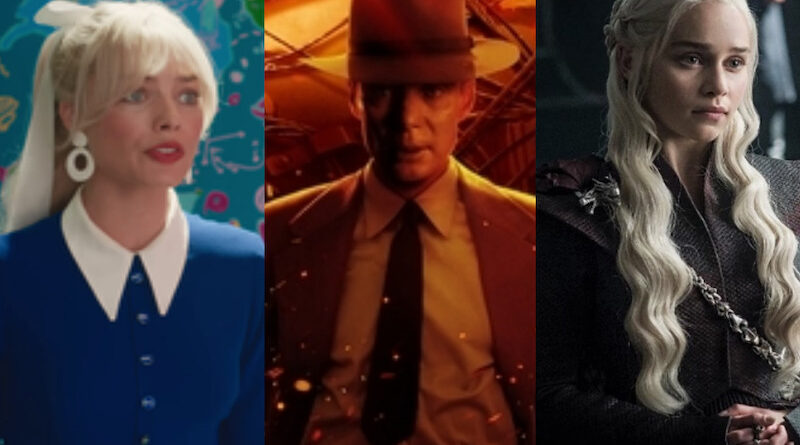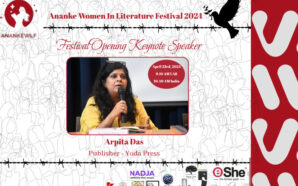Warning: Spoilers ahead for a host of movies and TV series – Barbie, Oppenheimer and Game of Thrones. Tread with caution!
Today, I watched/heard a most stirring speech and it almost made me shed a tear – well, almost!
It goes like this:
It is literally impossible to be a woman. You are so beautiful, and so smart, and it kills me that you don’t think you’re good enough. Like, we have to always be extraordinary, but somehow we’re always doing it wrong.
You have to be thin, but not too thin. And you can never say you want to be thin. You have to say you want to be healthy, but also you have to be thin. You have to have money, but you can’t ask for money because that’s crass. You have to be a boss, but you can’t be mean. You have to lead, but you can’t squash other people’s ideas. You’re supposed to love being a mother, but don’t talk about your kids all the damn time. You have to be a career woman, but also always be looking out for other people. You have to answer for men’s bad behavior, which is insane, but if you point that out, you’re accused of complaining. You’re supposed to stay pretty for men, but not so pretty that you tempt them too much or that you threaten other women because you’re supposed to be a part of the sisterhood. But always stand out and always be grateful. But never forget that the system is rigged. So find a way to acknowledge that but also always be grateful. You have to never get old, never be rude, never show off, never be selfish, never fall down, never fail, never show fear, never get out of line. It’s too hard! It’s too contradictory and nobody gives you a medal or says thank you! And it turns out in fact that not only are you doing everything wrong, but also everything is your fault.
I’m just so tired of watching myself and every single other woman tie herself into knots so that people will like us. And if all of that is also true for a doll just representing women, then I don’t even know.
Had this been 2014, this monologue may possibly have had a different impression on me. Certainly acknowledging that each word holds more than an ounce of truth and not belittling any lived experience out of my own privilege, the conversation – to me – now does seem a tad bit reductive.
Barbie’s story begins with miserable looking little girls playing mommies to their baby dolls dressed in mousy unattractive attires until a new, fantastical looking doll makes her glorious descent and inspires all of them. – either ironing clothes or brushing their pretend babies’ hair – to violently smash (the patriarchy?) the living daylights out of the plastic playthings. In all honesty, while this seemed somewhat unsettling, a little voice inside still expressed hope. This was perhaps the beginning of something new – an alternate – where ideas such as men make war, let women make peace do not pit one gender against the other. An alternative where narratives are not created in mere binary terms.
On the other hand, is another movie making a huge splash across the world helmed by an auteur – Christopher Nolan. Certainly when it comes to craftsmanship, depth and creating an unforgettable movie viewing experience, Oppenheimer is Nolan’s magnum opus. Impeccable casting beginning with Cillian Murphy as Robert J Oppenheimer, Emily Blunt as Kitty Oppenheimer and Florence Pugh as Jean Tatlock among other luminaries; and coupled with a riveting cinematic experience by weaving an intricate web of timelines, many would urge and encourage to experience this must-see grandeur.
It may seem contradictory to what was earlier expressed, Oppenheimer does in fact lean heavily towards the phrase men make war… But here again, the question at hand is more about perception. How gender roles are conceptualized or even instigated; brought into the foray of society: militarized masculinities glorified, femininities ‘emasculated’ or stereotyped. True, one cannot generalize but truer still is this notion when one makes an attempt to deconstruct ‘Barbenheimer.’
Several years ago, there was much hullabaloo about a spectacular fantasy series Game of Thrones (yes my personal favorite, I must confess), with dragons, magic and depiction of visionary women. While there may be an excuse of source material not being available since it wasn’t written – as we still await with bated breath for George R.R Martin to pen those golden words – through the series’ trajectory and presentation of different character arcs showrunners David Benioff and D.B Weiss failed to make an exit from a problematic hegemonic, patriarchal system. As a consequence, the finale of a much-loved series became a source of disappointment, to say the very least. With all the ingredients of creating something momentous in TV viewing history as well as creating a seminal narrative, the showrunners failed to lift the series into a culmination it deserved. While Theon Greyjoy’s character arc– much to our joy – saw a beautiful transformation, it was Daenerys Stormborn of House Targaryen, First of Her Name, Mother of Dragons and Breaker of Chains whose arc shriveled. The Breaker of Chains and Mother of Dragons could not break the cycle!
What do Barbie and Danny have in common? Those who either create, visualize or present them (excluding the author in this instance) are only working within the system; knowing full well that it is broken.
What do Theon Greyjoy and Oppie (the character with all its artistic liberties – not the actual scientist) have in common? Their character arcs, the trajectory and their glorification. That said, I would personally still have more sympathy (even more admiration) for Greyjoy than the latter.
Coming back to Barbie, surpassing a billion dollar globally at the box office is quite a feat, also making its director Greta Gerwig the first woman director to achieve that milestone. But if you take a deep dive into the plot as well as movie marketing and chip away all that is plastic; its appearance will then seem less than fantastic (pun intended!). More like a viral meme, it is a movie that puts in all the right ingredients for movie goers, which not only comprise of the woke, the privileged, the feminists but a broad spectrum of demographics.
How do audiences especially young boys and girls in their teens react to the movie? In conversation with the former, a 15 year-old defended Oppenheimer saying: “He did it for his country. He had no choice since anyone else could have made the bomb, had it not been him.” Not even watching the movie Barbie and getting feedback on it from his friends, he was quick to form an opinion: “It’s just all about feminism where women are against men.” True, it is but one opinion. Then there certainly are thousand others who speak vociferously about the impact of the Barbie movie on women’s empowerment.
What can one discern from such summation? The integration, positionality and presentation of ideas, plot and storyline vis-à-vis a movie-goers experience. True, this is not something new but merely pasting trending ideas in an art form does more harm. For Barbie, it seems like an SEO exercise, where all the right keywords are integrated to captivate its audience, elicit a response desired by the system. A system created by heteronormative hegemony where even ideals of feminism, diversity and inclusion have to work within a framework.
A framework that is not just problematic… it is crippling.
Thanks to a Feminist Foreign Policy Course, by the Gender Security Project, I came across this thought-provoking comment by Reni Eddo Lodge, we must all reflect – moving forward: “I don’t want to be included. Instead, I want to question who created the standard in the first place. After a lifetime of embodying difference, I have no desire to be equal. I want to deconstruct structural powers of a system that has marked me out as different. I don’t wish to be assimilated into the status quo. I want to be liberated from all the negative assumptions that my characteristics bring. The same onus is not on me to change. Instead it’s the world around me.”
What did Barbie, the movie, showcase – a white privileged female named Stereotypical Barbie who initially dismantles the notion of care work as a woman’s prerogative, assumes all wrongs have been righted, who runs away from male puppeteers, seeks revenge from patriarchy spewing machismo, finding success only to come back to real world merely to begin her life by meeting her gynecologist. Not much to say about character arc here!
Any art form is an endeavor in resistance, an act of protest, resilience and expression, a space for critical thinking, political inquiry and imaginative thought. Quoting Robin Williams’ character John Keating in Dead Poets Society: “We don’t read and write poetry because it’s cute. We read and write poetry because we are members of the human race, and the human race is filled with passion. Medicine, law, business, engineering, these are noble pursuits and necessary to sustain life. But poetry, beauty, romance, love, these are what we stay alive for.”
“No matter what anybody tells you, words and ideas can change the world.”
Credit: Wikipedia – Oppenheimer Image Barbie, Game of Throne/Danny Targaryen – All movie images are from Wikipedia











